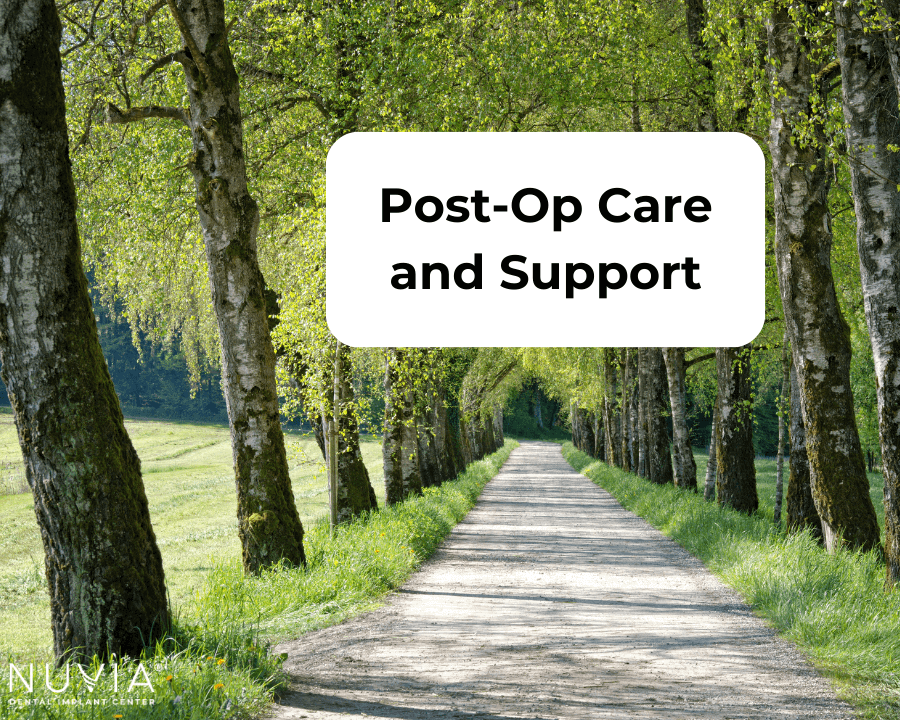
Types of Dental Implants
Find Out If You May Be EligibleFor Permanent Teeth in 24 Hours
Get The Dental Implant Cost Guide

When it comes to types of dental implants, there are several options to choose from. Dental implants have been around for thousands of years, but were rediscovered around 1965 and have been continually evolving with the development of new methods. The two most common types of dental implants today are endosteal and zygomatic, each serving a unique purpose and used in different situations.
In this article we will be reviewing the two kinds of dental implants; endosteal and zygomatic implants and how they can improve your smile and dental health.
Endosteal Implants (en-doss-ste-eel)
Endosteal implants are the most common type of dental implant used for full mouth dental implant treatment. They consist of small titanium posts that are surgically placed into the jawbone, and they fuse with the bone over time. After the implants are placed, they will begin to fuse with the jawbone over the next few months providing a sturdy and permanent base for your new teeth to use for years to come.
Endosteal implants are highly effective and durable, making them an excellent choice for full mouth dental implant treatment. Because they are placed directly into the jawbone, they offer exceptional stability and support for your new teeth. This type of implant is also highly versatile, meaning that it can be used to support a wide range of dental restorations, including dentures, bridges, and crowns. Additionally, endosteal implants help to maintain the natural structure of the jawbone and can prevent bone loss, which can occur after tooth loss.
Endosteal implants are usually the most cost effective option for full mouth dental implants.
Endosteal dental implants are a great option for patients who have enough healthy jawbone to support the dental implants. If you have lost bone density in your jaw, you may still be a candidate for endosteal implants, but you may need a bone graft first to build up enough bone density to support the dental implants.
One of the biggest advantages of endosteal implants is that they are a long-lasting and durable solution for missing teeth. With proper care and maintenance of your dental implants, they can last for many years, and even a lifetime.
Zygomatic Implants
Zygomatic implants are a less common type of dental implant, but still a very helpful option when needed. Zygomatic dental implants are an alternative type of dental implant used for full mouth dental implant treatment. Unlike endosteal implants, which are placed directly into the jawbone, zygomatic implants are anchored to the cheekbone, also known as the zygoma. This makes them an ideal option for patients who have experienced severe bone loss in the upper jaw and are not suitable candidates for traditional implants.
Zygomatic implants are longer than traditional implants and are designed to anchor to the strong and stable cheekbone, bypassing the need for bone grafting procedures. This can greatly reduce the time and cost of dental implant treatment while also providing an effective and long-lasting solution for tooth replacement.
Zygomatic dental implants can offer several benefits for patients undergoing full mouth dental implant treatment. For one, they can reduce the need for additional bone grafting procedures, which can be invasive and require a longer healing time. Additionally, zygomatic implants can provide excellent stability and support for dental restorations, even in cases where traditional implants may not be feasible. This can allow patients to enjoy a full set of teeth and a healthy, beautiful smile without the discomfort and inconvenience of traditional dentures.
Overall, zygomatic dental implants can be an excellent option for full mouth dental implant treatment, particularly for patients who have experienced significant bone loss in the upper jaw.
The cost of zygomatic dental implants may be higher compared to endosteal dental implants due to the complexity of the procedure and the extended training required to place them. However, zygomatic implants can be an excellent option for patients with severe bone loss in the upper jaw, and the benefits they offer can be well worth the additional cost.
Our experienced oral surgeons are trained in placing both endosteal and zygomatic dental implants for you, ensuring that you receive the best possible care and treatment.
You deserve a dentist who will give you comprehensive dental implant care, and we strive to make the process as seamless and comfortable as possible for you. If you are considering dental implants, take our 60-second quiz to find out if you qualify! Our team would be happy to discuss your options with you and help you make an informed decision about your dental implant treatment.
One of the benefits of zygomatic implants is that they can be a quicker solution than a bone graft, which may be needed in order to support endosteal implants. Because they are placed into the cheekbone rather than the jawbone, they can also be a more comfortable option for patients who may have discomfort or pain in the jaw. Not all generic providers offer zygomatic dental implants and may disqualify you because you do not qualify for endosteal implants. If you have been disqualified for dental implants, it may be worth getting a second opinion from Nuvia dental implant center because we have oral surgeons trained and ready to safely place zygomatic dental implants and could help you get into your new smile today.
Full mouth dental implants are a highly effective solution for patients who have lost all or most of their teeth. Whether you are a candidate for endosteal or zygomatic implants, you can enjoy a stable, functional, and natural-looking smile that can last a lifetime. If you're interested in learning more about full mouth dental implants, take our 60-second quiz to find out if you qualify today!
More Articles Like This one

Dental Implants Growth Forecasting

Dental Implants Post-Op Care and Support - What to Know






